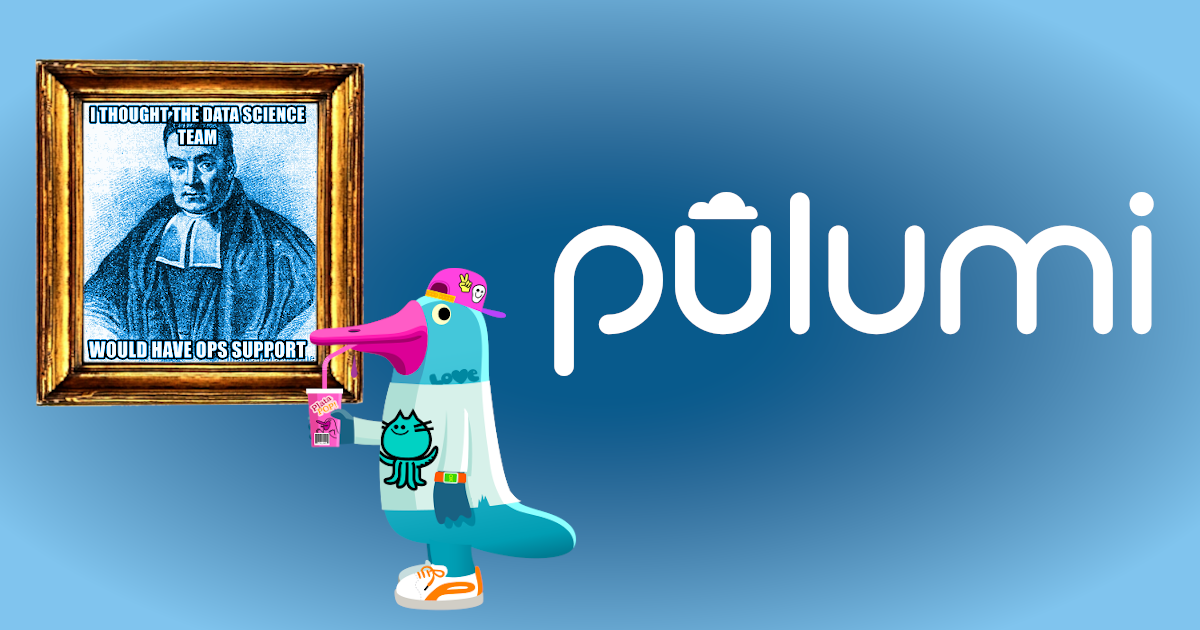
Data science has advanced because tools like Jupyter Notebook hide complexity by running high level code for the specific problem they are trying to solve. Increasing the level of abstraction lets a data scientist be more productive by reducing the effort to try multiple approaches to near zero, which encourages experimentation and better results.
Data scientists typically work locally, but they often store data for analyses and models in the cloud. There are clear advantages to using cloud resources for these tasks:
- Data scientists generally don’t want to manage their storage and databases.
- They need to be able to store large data sets cheaply.
- They need large capacity swings available on-demand.
SDKs like AWS’ Python library, boto3, can create resources, but they still require domain expertise to manage and properly architect a solution. The Pulumi Automation API improves on raw SDKs by providing high-level abstractions for creating and managing cloud services, letting data scientists concentrate on analyses and models without being well-versed in cloud APIs.
Read more →










